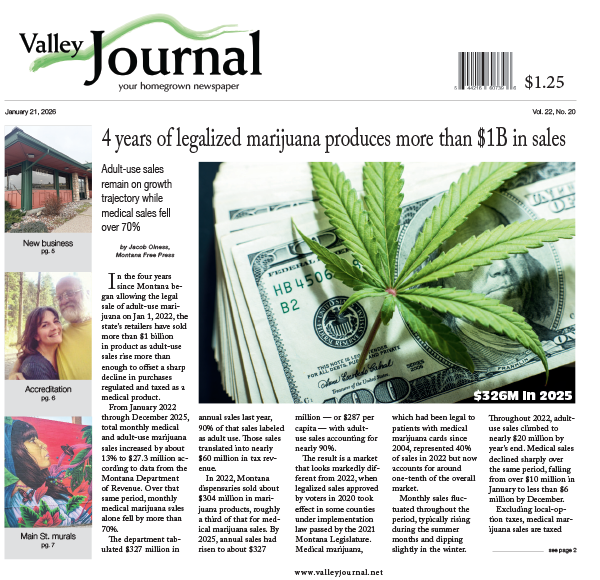Slices of Life
The increments of life
Hey savvy news reader! Thanks for choosing local.
You are now reading
1 of 3 free articles.
We measure things in increments. A cup of flour. A glass of wine. 98.6 degrees for a normal human body temperature. A standard sheet of paper is 8.5 by 11 inches. The wind is blowing at 11 miles per hour. You fill your tires to 33 pounds per inch. The barometric pressure at my house right now is 30. A pound of butter weighs in at 16 ounces. So does a pound of feathers and a pound of concrete.
So many numbers, so little time.
And therein lies the topic of this column.
But I’m getting ahead of myself. This column is about numbers, but it isn’t, really.
It’s about time. Your time. My time. We measure life in increments of time.
I read somewhere that humans are battling time. We each are granted a finite amount of it on this earth. Therein lies the war.
We can’t know how long our time will be, exactly, but we can look at averages.
The life expectancy of the average human in the United States right now is 77.5 years. That equates to 930 months, 4,030 weeks or 28,210 days.
That means each of us, on average, can expect about 28,210 days on this earth. (Even though each of us knows we are certainly not average.)
Of those days, and weeks, 18 years are spent in childhood.
Childhood is a wonderful time of growth and jejunity. I’ve often heard the phrase that youth is wasted on the young. I’m not saying childhood is a waste (just the opposite, in fact.) But for the purposes of this discussion, let’s consider time on earth spent as an adult.
Adult life begins at 18, so if we consider just our adult life we each have about 3,094 weeks.
We sleep about eight hours each night - or the equivalent of one-third of our time on earth. If we take sleep out of our equation, we have 14,439 days of awake time. (About 2,063 weeks, if we are counting.)
Most people work about 40 hours a week from age 18 to (optimistically) 65. You can have lots of fun at work, but it’s still “work” so if you minus that time out, you are left with 1,481 weeks.
Those make up roughly 10,367 days.
That makes 248,808 hours, which sounds like a lot until you do the math a little further and realize it equates to 341.7 months, or about 28.5 years.
When you break it down like this, life doesn’t seem so infinite anymore.
And simply realizing that is pretty monumental.
I lived most of my life as though I had an infinite number of days, because it felt that way.
But then.
But then you graduate from high school and while you probably don’t think about it at the time, you will never, ever be there or do that again, and high school is a pretty big time in life.
But then you fall in love and get married and both life and love feel big and tall and wide. And somehow you find yourself celebrating your 30th birthday and you feel older, until your 40th birthday, when you feel a new version of older. And you think about it, but don’t really think about it; you’ll never be 30 or 40 ever again.
And then 50. And so on.
Amongst all this, the weeks are being spent. And if you are like me, you remain oblivious.
And maybe that’s how it rolls all the way to the end. Or maybe something happens, somewhere along the way, to change you - to alter the way to see things in the most fundamental of ways.
And maybe you start living life like it is finite rather than infinite.
Like every week, every day, every hour, every moment, truly matters.
Because it does.
You might think this all sounds depressing, but I propose that when you really grasp the truth of time, it is the exact opposite of depressing.
It is enlightening and liberating. It is like learning to fly because you suddenly realize you had wings all along.
Jill Pertler is an award-winning syndicated columnist, published playwright and author. Don’t miss a slice; follow the Slices of Life page on Facebook.
















